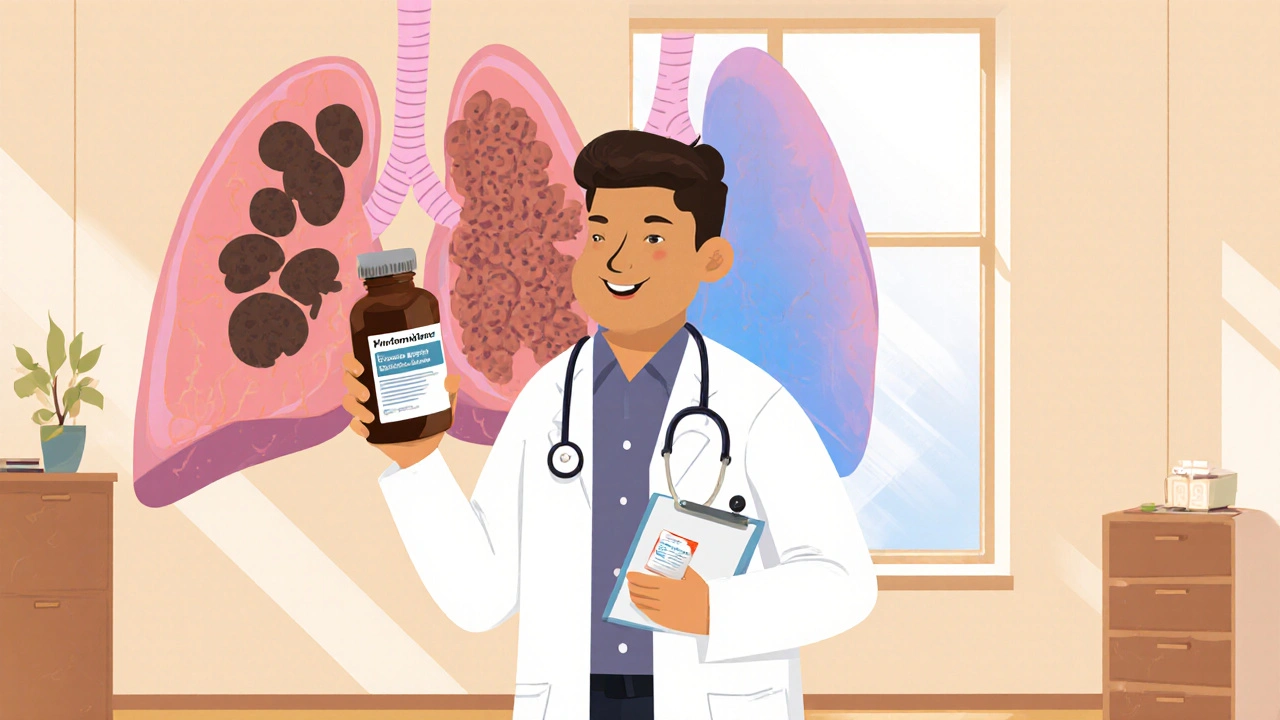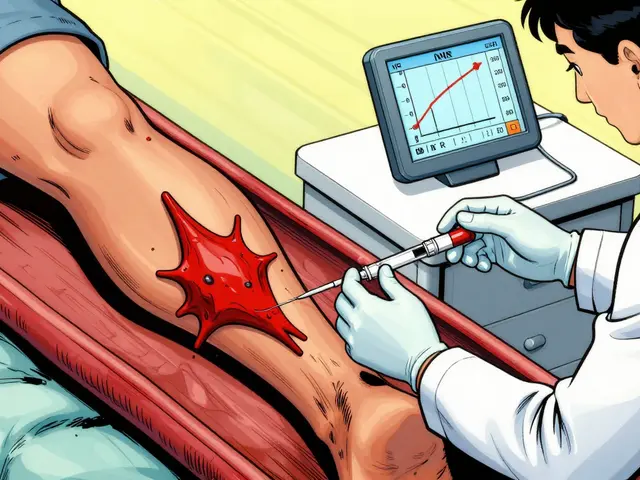IPF Therapy: What Works, What’s New, and How to Navigate Treatment Options
When you’re dealing with idiopathic pulmonary fibrosis, a progressive lung disease where scar tissue builds up in the lungs, making it harder to breathe. Also known as IPF, it doesn’t have a known cause, but it does have treatments that can slow it down. Unlike other lung conditions, IPF doesn’t respond to steroids or typical anti-inflammatories. That’s why antifibrotic therapy, a targeted approach using drugs that block the scarring process in lung tissue is now the standard. Two drugs — pirfenidone and nintedanib — are FDA-approved and proven to reduce the rate of lung function decline by about 50% over a year. These aren’t cures, but they’re the best tools we have right now to buy time and keep people active longer.
What makes IPF therapy tricky is that it’s not one-size-fits-all. Some people tolerate one drug better than the other. Side effects like nausea, sun sensitivity, or diarrhea can be rough, but they’re often manageable with dose adjustments or timing changes. And while these drugs slow progression, they don’t reverse damage. That’s why lung disease management, a broader strategy that includes oxygen therapy, pulmonary rehab, nutrition, and monitoring for complications is just as important as the pills you take. Pulmonary rehab, for example, isn’t just exercise — it’s training your body to use less oxygen, teaching breathing techniques, and helping you stay independent. Many patients don’t realize how much this part matters until they’re already struggling to walk across the room.
The future of IPF therapy is moving fast. New drugs are in trials targeting different parts of the scarring pathway. Some are looking at gene therapy, others at stem cells. Biomarkers are being tested to predict who’ll respond to what treatment, so we’re moving away from trial-and-error. And while a cure isn’t here yet, the goal now isn’t just survival — it’s quality of life. That means managing symptoms like cough and fatigue, staying socially connected, and planning ahead. The posts below cover everything from how these drugs actually work in your body, to what new studies are showing, to real stories from people living with IPF. You’ll find clear comparisons, updates on clinical trials, and practical tips for staying in control when your lungs are fighting back.






